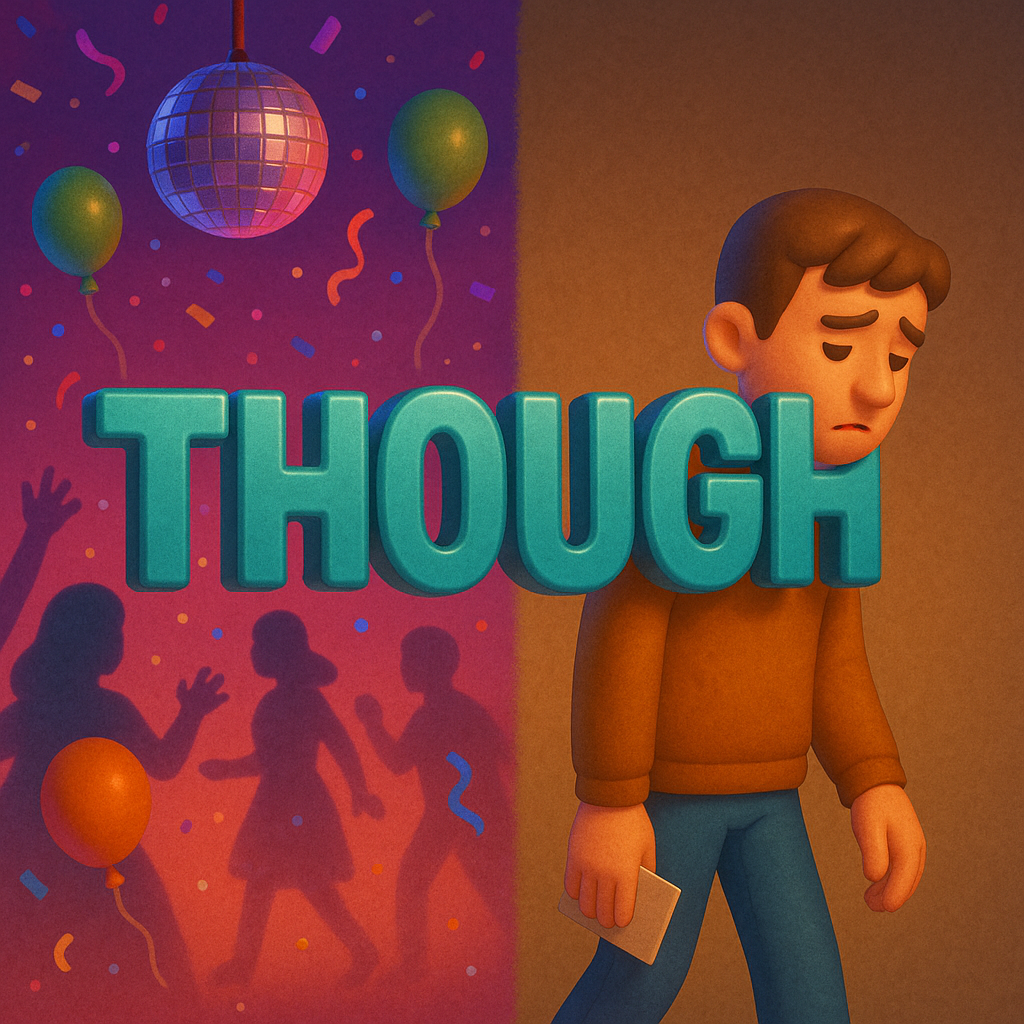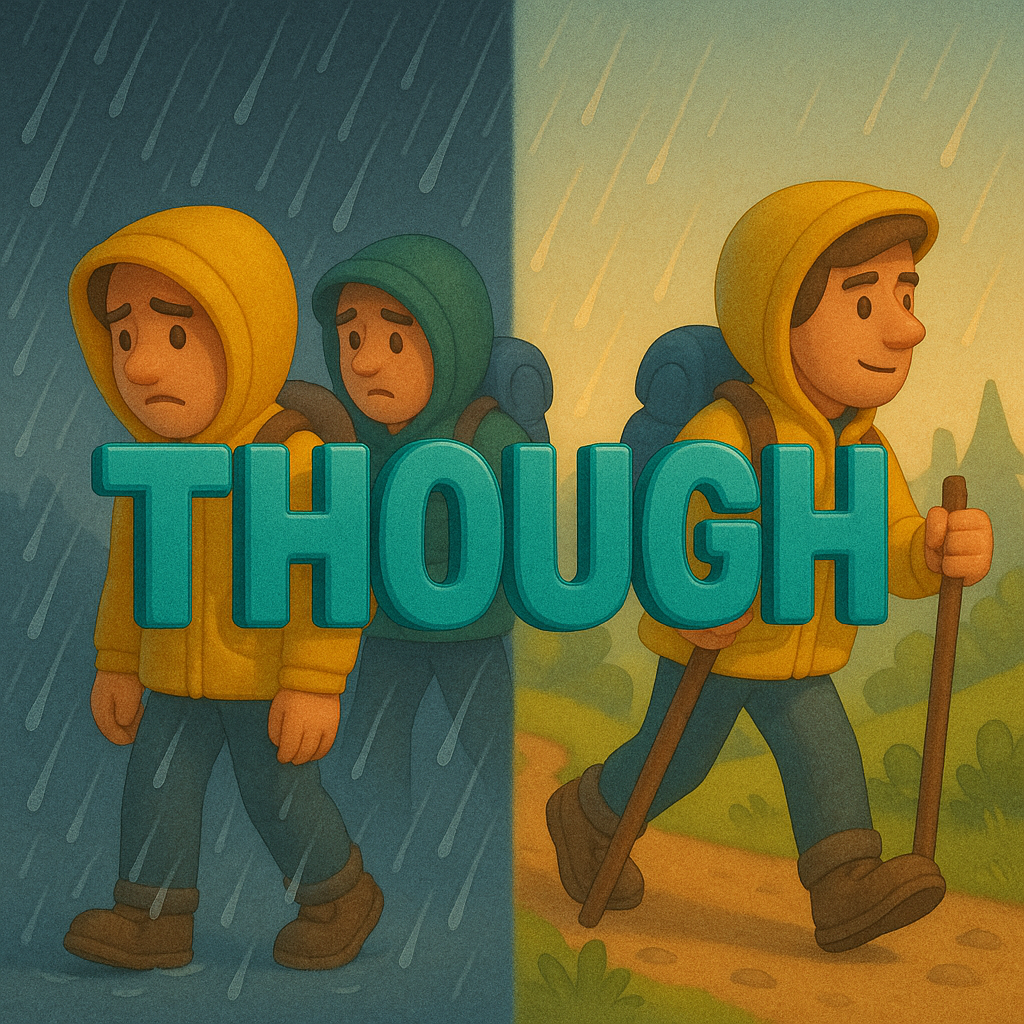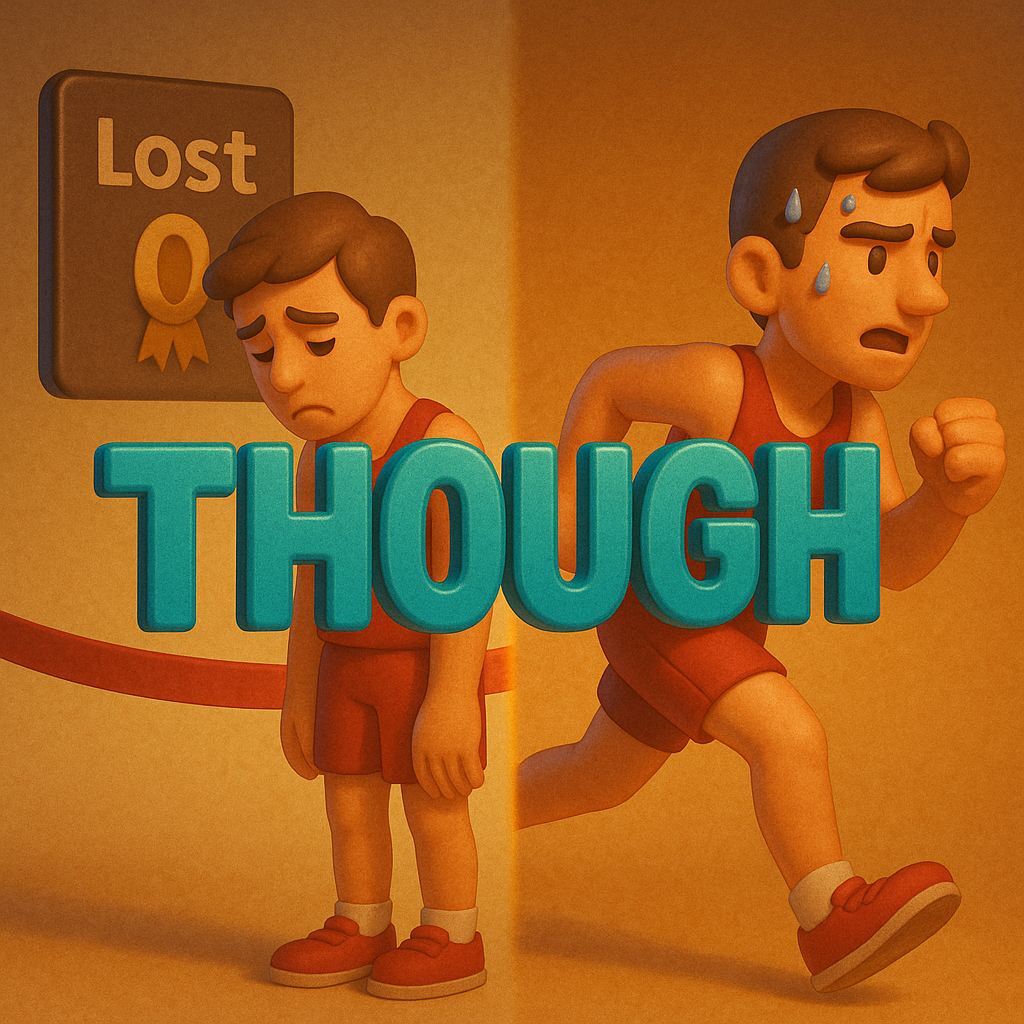Though
Definition
Though is a conjunction or adverb used to introduce a contrast, indicating that a particular fact does not affect the main statement.
Parts of Speech
- Conjunction
- Adverb
Pronunciation
American English
- IPA Pronunciation: /ðoʊ/
- Respelling: THOH
British English
- IPA Pronunciation: /ðəʊ/
- Respelling: THOH
Etymology
The word "though" originates from Old English "þēah," meaning "although" or "even if." It is related to Old High German "doh" and Old Norse "þó." The term has been used in English since the Middle Ages to express contrast or concession.
Derivatives
- Although (conjunction)
- Even though (phrase)
- Thoughful (adjective, archaic)
- Thoughness (noun, rare)
- Thoughly (adverb, archaic)
Synonyms
- Although
- However
- Nonetheless
Antonyms
- Therefore
- Thus
- So
Usage
The word "though" is commonly used to introduce a statement that contrasts with or modifies what was previously mentioned. For example, "She enjoyed the movie, though it was a bit long." It can also be used as an adverb for emphasis at the end of a sentence, e.g., "It was hard work. Fun, though."
Related Terms
- Although: Used similarly to "though," often interchangeably.
- Yet: Another term indicating contrast or concession.
- However: A word introducing a contradiction or exception.
Detailed Definitions
Conjunction
- Used to introduce a statement that contrasts with or seems to contradict something previously mentioned: Indicates concession or exception.
- Example: "He went to the party, though he didn’t feel like it."
- Used to imply that a fact does not make something else untrue: Suggests that a condition does not negate a preceding statement.
- Example: "Though it was raining, they decided to continue the hike."
Adverb
- Used for emphasis, often at the end of a sentence: Adds contrast or concession to a previous statement.
- Example: "I didn’t win. I tried hard, though."
though



🇨🇳 Chinese (Mandarin)
- 虽然
- IPA Pronunciation: /swēi rān/
- English respelling: suīrán
- 尽管
- IPA Pronunciation: /jìn guǎn/
- English respelling: jǐnguǎn
🇮🇳 Hindi
- फिर भी
- IPA Pronunciation: /pʰir bʱiː/
- English respelling: phir bhi
- हालांकि
- IPA Pronunciation: /ɦaːlaːŋki/
- English respelling: hālānki
🇪🇸 Spanish
- Aunque
- IPA Pronunciation: /a'unke/
- English respelling: aunque
- Si bien
- IPA Pronunciation: /si 'bjen/
- English respelling: si bien
🇫🇷 French
- Bien que
- IPA Pronunciation: /bjɛ̃ kə/
- English respelling: bien que
- Même si
- IPA Pronunciation: /mɛm si/
- English respelling: même si
🇸🇦 Arabic (Modern Standard Arabic)
- على الرغم من
- IPA Pronunciation: /ʕalaː rʁʊgmi mɪn/
- English respelling: 'ala al-ruġm min
- مع أن
- IPA Pronunciation: /maʕ ʔan/
- English respelling: ma'an
🇧🇩 Bengali
- যদিও
- IPA Pronunciation: /ɟɔdio/
- English respelling: jodiyo
- কিন্তু
- IPA Pronunciation: /kintu/
- English respelling: kintu
🇷🇺 Russian
- Хотя
- IPA Pronunciation: /ˈxotʲə/
- English respelling: khotya
- Несмотря на
- IPA Pronunciation: /nʲɪsmotʲrʲə na/
- English respelling: nesmotrya na
🇵🇹 Portuguese
- Embora
- IPA Pronunciation: /ẽˈboɾɐ/
- English respelling: embora
- Apesar de
- IPA Pronunciation: /ɐpɨˈzaɾ dɨ/
- English respelling: apesar de
🇮🇩 Indonesian
- Meskipun
- IPA Pronunciation: /mɛskipun/
- English respelling: meskipun
- Walaupun
- IPA Pronunciation: /walaupun/
- English respelling: walaupun
🇩🇪 German
- Obwohl
- IPA Pronunciation: /ɔpˈvoːl/
- English respelling: obwohl
- Trotzdem
- IPA Pronunciation: /ˈtrɔtstseːm/
- English respelling: trotzdem
🇯🇵 Japanese
- しかし
- IPA Pronunciation: /ɕi̥kɕi/
- English respelling: shikashi
- けれども
- IPA Pronunciation: /keɾedomo/
- English respelling: keredomo
🇻🇳 Vietnamese
- Mặc dù
- IPA Pronunciation: /mək zûˀ˨˩/
- English respelling: mặc dù
- Tuy nhiên
- IPA Pronunciation: /tuj ɲiən˧˨/
- English respelling: tuy nhiên
🇰🇷 Korean
- 그럼에도 불구하고
- IPA Pronunciation: /kɯɾɯmɛdo pulguhaɡo/
- English respelling: geureomedo bulguhago
- 비록
- IPA Pronunciation: /biɾok̚/
- English respelling: birok
🇹🇷 Turkish
- Her ne kadar
- IPA Pronunciation: /heɾ ne kaːdɑɾ/
- English respelling: her ne kadar
- Olsa da
- IPA Pronunciation: /ol̪s̪a d̪a/
- English respelling: olsa da
🇵🇰 Urdu
- ہالانکہ
- IPA Pronunciation: /ɦaːlɑːnkɛ/
- English respelling: hālānkah
- پھر بھی
- IPA Pronunciation: /pʰɪr bʱiː/
- English respelling: phir bhī





